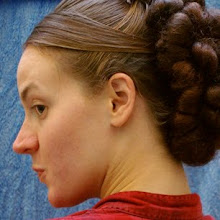
“wllfti shwiya?” is a question I have been asked frequently in the last several months. The speaker is asking if I have adjusted a little – to Morocco and now to living by myself. For the most part I have.
Moving into my home has not been a completely smooth transition. I’ve taken on the burdens of being the woman of the house: trying to figure out how to set up the electricity in my name (still not entirely resolved), finding first hand the dangers of gas powered appliances (and not installing your CO detector first-thing), battling the molding furniture in this particularly wet winter, and just generally trying to keep a neat and tidy Moroccan home.
I am more than grateful for my new neighbors, whom I knew before I moved in, who have helped me immensely in setting up my house and feeding me while I still did not have my kitchen in workable order. It is excellent to have neighbors that know how to fix your plumbing and electric problem all in the same half an hour! I only hope I can be as worthy a neighbor in return.
The house itself I’ve already grown attached to. Even on the first night in the place I felt like I was at home. The roosters that crow at all hours from behind my house, the pigeons that roost above the courtyard (and make me cautious about where I hang my laundry), and the kids that play marbles outside my front door all bring me comfort in finding my place for the next two years (Inshallah).

The space is more than I need (and I would have settled for less if a suitable option presented itself to me), and one room has just become my oversized closet. Although I do not have a roof-space as I originally wanted, I do have a walled-in courtyard that the sun peers over in the morning. I may still try growing some things in hanging-baskets as I’ve heard from the previous occupants it is even sunnier in the summer.
I’ve managed to make my tiny kitchen comfortable, and I am delighted to be able to cook for myself – particularly with enough time to make things like fresh tortillas and loaves of bread. As a lot of people in the U. S. are switching from the mindset of convenience-is-best to really thinking about where their food comes from and what’s in it, I’ve got a free ticket to really explore what I can prepare with limited pre-packaged ingredients. Have I mentioned that I am literally living just off the main vegetable-market street?
Certainly, my home is not the dirt-hut I had conjured in my mind before setting off with the Peace Corps, but I won’t complain. There are places in the country that are much less developed than where I am (and even stepping outside of the city center brings me to neighborhoods closer to what I had imagined I would find). No matter my current home this is the base from which I will hopefully become a positive part of the community.





